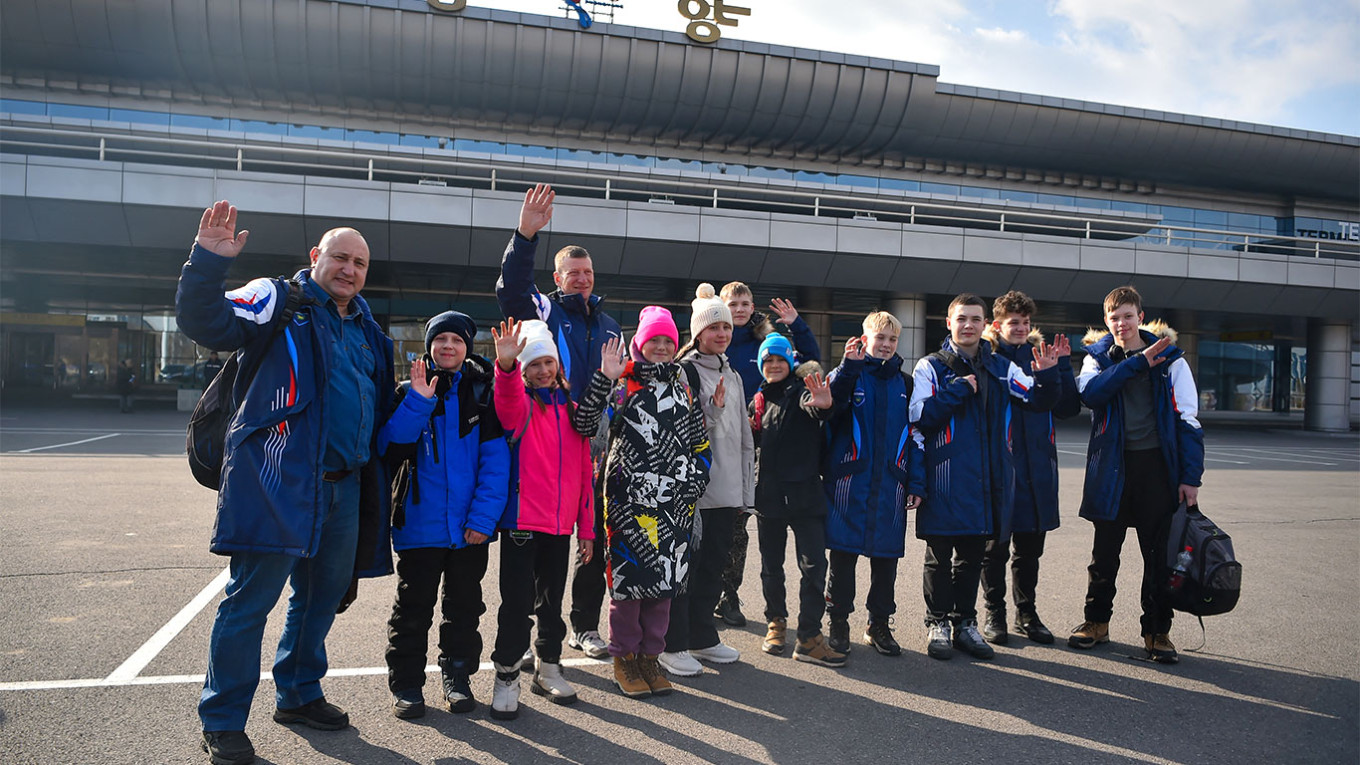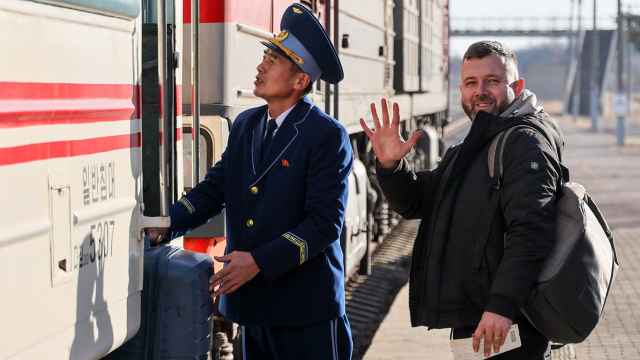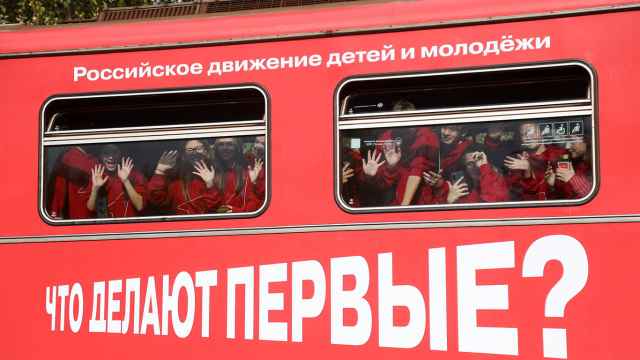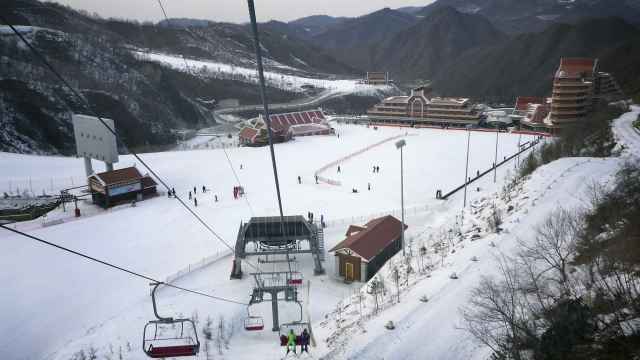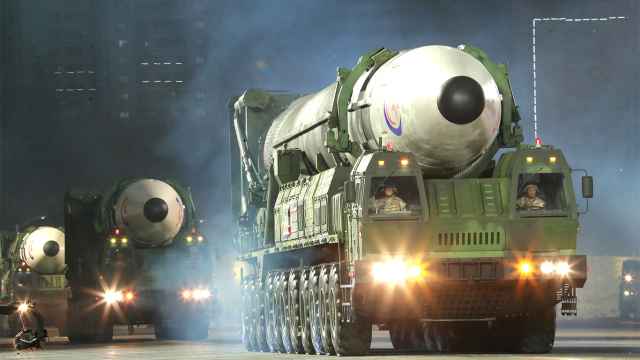A group of Russian tourists arrived in Pyongyang on Friday, AFP photos and video showed, the first known foreign tour group to visit nuclear-armed North Korea since before pandemic-linked border closures.
Their arrival comes as Moscow and Pyongyang bolster ties, with North Korea's leader Kim Jong Un making a rare overseas trip to meet President Vladimir Putin in the Russian Far East last September.
Images shot by AFP reporters showed Russian tourists arriving at Pyongyang airport, many wearing puffer jackets and pushing suitcases or winter sports equipment including skis, smiling and waving as they moved through the airport and left for nearby coaches.
South Korea and Washington have claimed the North has subsequently shipped weapons to Moscow for use in Ukraine, which would violate rafts of UN sanctions on both countries, the North for its banned weapons programs and Russia for the war with Kyiv.
The tour group will be in North Korea for four days, Natalia Zinina, a manager at Vostok Intur tour agency which organized the trip, told Seoul-based specialist site NK News.
Around 100 visitors will first stop in "Pyongyang before traveling to the Masikryong Ski Resort near the city of Wonsan on the country's east coast," the report said.
It has become harder for Russians to travel to Europe and the United States since sanctions were imposed following the invasion of Ukraine. Russian Foreign Minister Sergei Lavrov, who has also visited Pyongyang, said last year that the North could be recommended as a tourist destination, TASS reported.
New destination
The Russians are believed to be the first group of foreign tourists to enter the North since the country reopened its border last August, after nearly four years of pandemic-linked border closures, when even its own nationals were prevented from entering.
The official DPR Korea Tour website has recently uploaded promotional videos showcasing various attractions, such as the scenic Taedong River and the snow-covered Mount Paektu.
Analysts have said leader Kim showed a particular interest in developing North Korea's tourism industry in his early years in power, indicating this may be a priority for the leader post-pandemic.
Pyongyang and Seoul once cooperated on the Mount Kumgang complex where thousands of South Korean tourists visited. But that came to an abrupt end in 2008 after a North Korean soldier shot dead a tourist from the South who strayed off an approved path, and Seoul suspended travel.
Before the pandemic, other tourism to the North was limited, with tour companies saying around 5,000 Western tourists visited each year. US citizens made up about 20 percent of the market before Washington banned travel following the imprisonment and subsequent death of American student Otto Warmbier.
Strong ties
The arrival of the Russian tourists "highlights the revitalization of exchange and cooperation in various fields between the two countries following the North Korea-Russia summit," Yang Moo-jin, president of the University of North Korean Studies in Seoul, told AFP, referring to Putin and Kim's meeting last year.
He said the latest development indicated Putin was likely to visit the North, with more Russian humanitarian aid including food to the impoverished North also very possible.
"North Korea is also likely to speed up and expand the scope of its support, including missiles, to Russia," he added.
Nuclear-armed North Korea has this year declared Seoul its "principal enemy", closed agencies dedicated to reunification and outreach, and threatened war over "even 0.001 millimeters" of territorial infringement.
Moscow and Pyongyang ties look set to "grow significantly in the future," said Ahn Chan-il, a defector-turned-researcher who runs the World Institute for North Korea Studies.
With engagements widening beyond military exchanges, to include tourism, arts and sports, "it seems that North Korea's efforts to integrate into the international community will primarily be directed towards Moscow rather than Beijing."
A Message from The Moscow Times:
Dear readers,
We are facing unprecedented challenges. Russia's Prosecutor General's Office has designated The Moscow Times as an "undesirable" organization, criminalizing our work and putting our staff at risk of prosecution. This follows our earlier unjust labeling as a "foreign agent."
These actions are direct attempts to silence independent journalism in Russia. The authorities claim our work "discredits the decisions of the Russian leadership." We see things differently: we strive to provide accurate, unbiased reporting on Russia.
We, the journalists of The Moscow Times, refuse to be silenced. But to continue our work, we need your help.
Your support, no matter how small, makes a world of difference. If you can, please support us monthly starting from just $2. It's quick to set up, and every contribution makes a significant impact.
By supporting The Moscow Times, you're defending open, independent journalism in the face of repression. Thank you for standing with us.
Remind me later.


